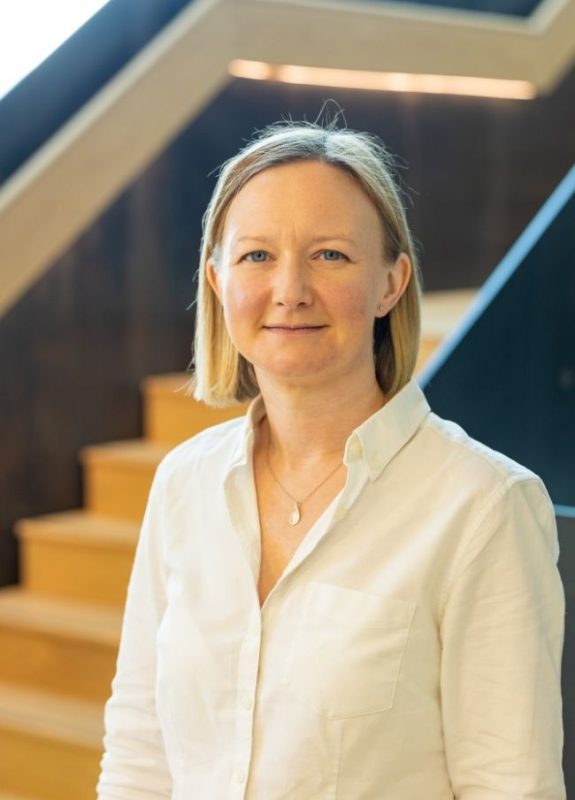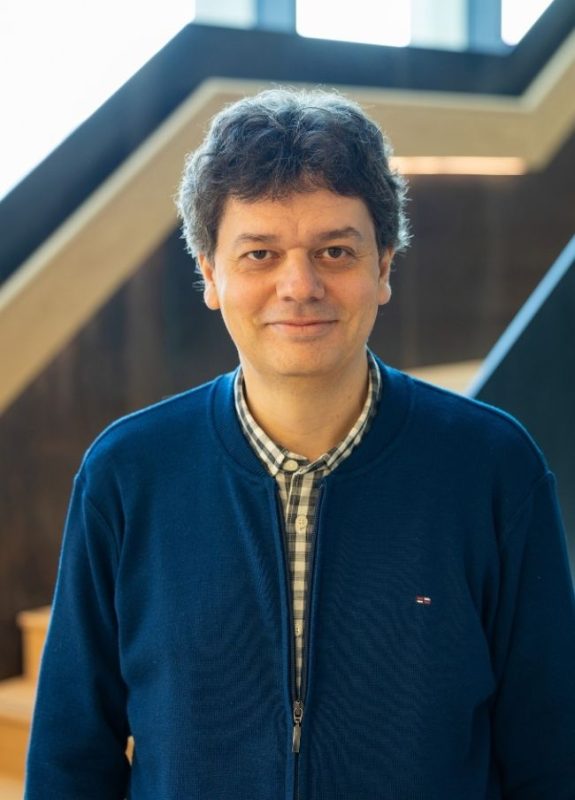Cancer Research UK has awarded significant funding to researchers at the MRC Laboratory of Medical Sciences (LMS) to lead two exciting new projects that could result in discoveries that make a real difference to the lives of people with cancer in the future.
By Emily Armstrong
September 3, 2025
Time to read: 4 minutes
The prestigious funding, together totalling around £3 million, has been awarded to Dr Alexis Barr, head of the Cell Cycle Control group, and Professor Jesus Gil, head of the Senescence group at the LMS. The funding will enable our scientists to form national and international collaborations with experts in the field to better understand the mechanisms underlying cancer, one of the translational targets at the LMS.
Understanding cell proliferation to improve cancer therapies
All cancers are caused by uncontrolled cell proliferation – that is, cells replicating themselves when they should not, but the underlying mechanisms vary between cancer types. This means drugs which are effective for one cancer type may not work for another, making it a huge challenge to match the right drugs to the right patients. Dr Alexis Barr and the team want to ensure that each cancer is treated with the right drugs to stop the proliferation of that tumour, with minimal or no side-effects.
This new programme of work will allow them to understand how each cancer type has lost control of cell proliferation, and how researchers can use that information to treat cancer better. The team has already identified unique cell proliferation changes in bladder cancer and will start work in this cancer type. Bladder cancer is the 10th most common cancer in the world but receives significantly less attention than other cancer types.
The funding will allow them to team up with a world-leading bioinformatician – Dr Maria Secrier at UCL, to analyse thousands of patient tumours to identify changes in mechanisms controlling cell proliferation. They will test how those changes culminate in loss of proliferation control and how they can restore that control to prevent, or eliminate, tumour growth. They will work with leading clinician researchers – Dr Anna Wilkins at the Institute of Cancer Research in London and Professor Rakesh Heer at Imperial College London, plus Dr Jenny Rohn at UCL who has developed innovative, 3D models for studying the bladder, and alongside their enthusiastic and engaged bladder cancer patient group from the Maggie’s Centre at Charing Cross Hospital.

Targeting ‘zombie’ cells to treat ovarian cancer
High-grade serous ovarian cancer (HGSOC) is the most common and aggressive form of ovarian cancer. While it can be treated with cisplatin, it often comes back. Senescence is when damaged cells stop dividing but don’t die, becoming like ‘zombie’ cells. Cisplatin can trigger this in cancer cells. This process affects how the immune system reacts and may influence how well chemotherapy and immunotherapy work.
The team will use the funding to investigate how these drugs cause senescence. Knowing how cisplatin induces senescence, and how the newly senescent cells behave, will help the team develop novel anti-cancer therapies. By enhancing the body’s natural ability to clear senescent cells, the team hopes to be able to more effectively treat cancers such as HGSOC.
Professor Jesus Gil will work closely alongside Professor Iain McNeish, who is Professor of Oncology at Imperial College London and leads the Imperial Healthcare Tissue Bank. Through these roles and his involvement in clinical trials, Iain has access to patient samples of HGSOC, helping to make this research more clinically relevant. The proximity of Jesus and Iain’s labs will facilitate the rapid exchange of information between groups. The team will collaborate internationally with Dr Francis Rodier, at the Centre Hospitalier de l’Université de Montréal in Canada, who has expertise in both HGSOC and senescence, Dr Scott Lowe at Memorial Sloan Kettering Cancer Center in the US, a world leader in senescence and cancer research and a pioneer in establishing genetic engineering mouse models, and Dr Johannes Zuber at the Research Institute of Molecular Pathology (IMP) in Austria, who is a long-term collaborator with expertise in genetic screens and cancer therapeutics.

We’d like to congratulate Alexis and Jesus and look forward to hearing about how their research projects progress!
Banner image credit: Will Weston, Cell Cycle Control group at the LMS